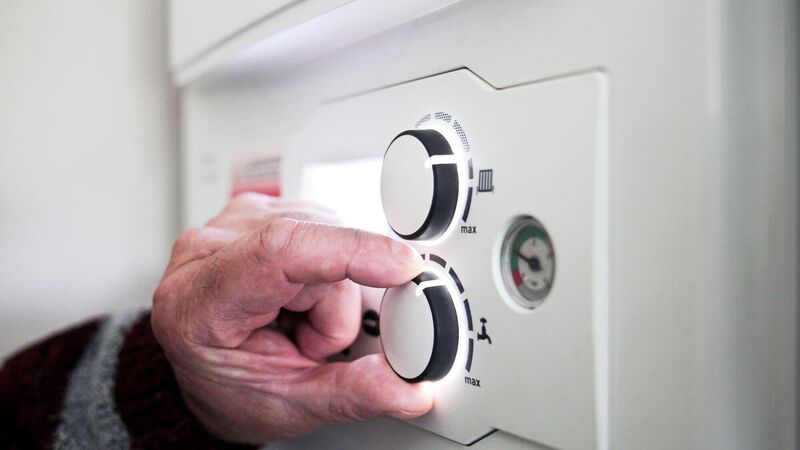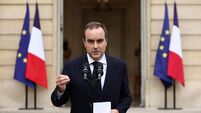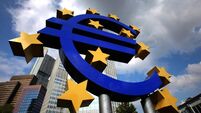Inflation sparks new fears for further sharp ECB rate rises

The week ended with European wholesale gas prices falling back but remaining at elevated levels through the winter months.
Inflation is now embedded across Europe and likely to spur the European Central Bank to hike business and household interest rates at an even faster pace, the latest Eurostat inflation figures suggest.
The new figures show that at 9%, Ireland’s inflation rate places it almost exactly in the middle of the eurozone inflation league, but that there is a huge range between how hot inflation is running across individual European countries.
At 6.6%, France has the lowest inflation rate by far, reflecting its government’s huge commitment to spend billions of euro to subsidise energy bills for households and businesses. Estonia’s inflation rate of 25% is the highest in European Union, reflecting the vulnerability of it and other Baltic states from their large dependence on Russian gas and oil.
Euro area annual #inflation up to 9.1% in August https://t.co/rqVbJoXqD2 pic.twitter.com/TgyH6SqNnL
— EU_Eurostat (@EU_Eurostat) September 16, 2022
The Eurostat figures are troubling because they suggest inflation which was initially sparked by the huge surge in gas and oil costs since Russia invaded Ukraine in late February has become embedded across large parts of the European economy.
The Eurostat figures will provide more clout to the European Central Bank to carry on with its fight against inflation, with further large interest rate increases, said Jack Allen-Reynolds, senior Europe economist at Capital Economics, in a commentary.
"While energy and food inflation are particularly high, measures of underlying and domestic inflation are also strong. So, the ECB will need to continue hiking interest rates aggressively at forthcoming meetings," he said.
Capital Economics predicts prices of oil and gas will fall next year, helped by measures of governments to shield their households and industry, but will stay at elevated levels nonetheless.
"The German government’s plan to introduce a 'price brake' on electricity bills, and the French government’s planned cap on electricity and gas price increases next year, will add to the downward pressure on energy inflation," according to the consultancy.
"All told, it is clear that the eurozone is experiencing a broad-based and growing inflation problem which looks set to keep the ECB raising interest rates at a fast pace," it said.
The week ended with European wholesale gas prices falling back but remaining at elevated levels through the winter months. Gas for delivery in December traded 7% lower on Friday at €212 per megawatt hour, which is still seven times higher than a year ago.
Gas prices remain high because of fears that Russia will turn off gas supplies completely to Europe this winter. The price of global crude oil as measured by the Brent grade traded at $92.25 a barrel.
Meanwhile, leading European and US stock market indices fell by up to 1.7% in the session, reflecting growing investor apprehension about the path of economic growth.
“There has been no end to the bearish moves of the past few days, with the final session in the red following a trio of warnings about the global economy," said Chris Beauchamp, chief market analyst at online trader IG.
"The IMF, the World Bank and FedEx have all given investors reason to worry, and investors have opted to continue their flight from equities," he said.





